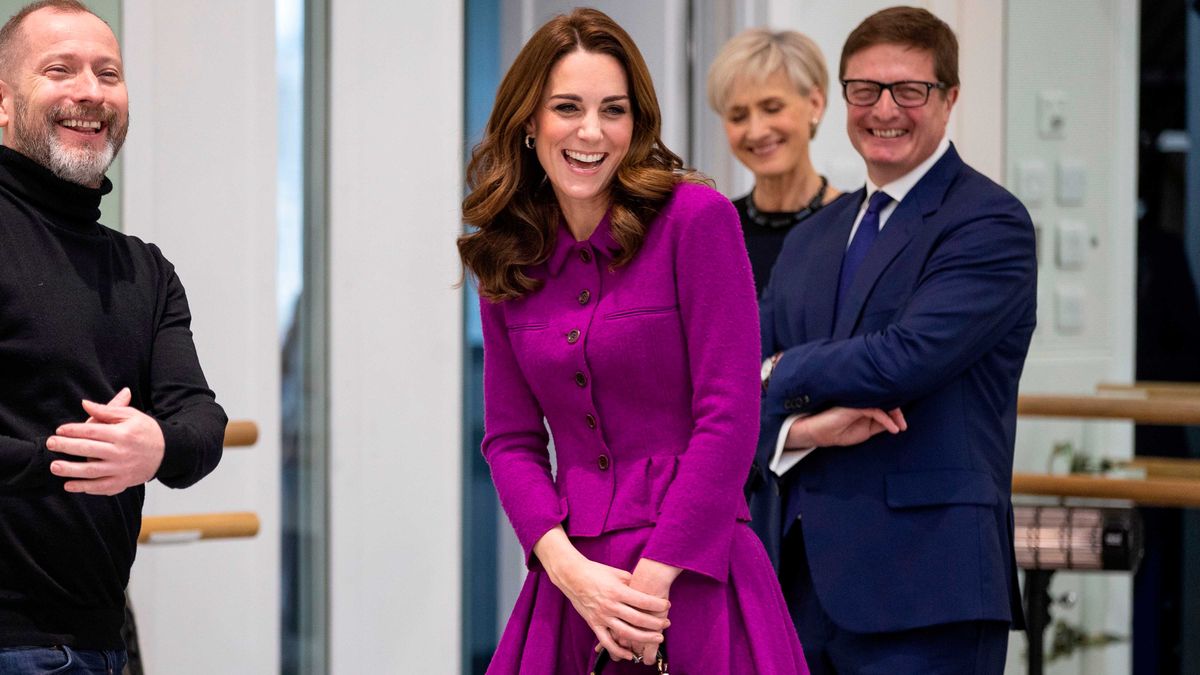Anyone who follows the British royal family will have come across the phenomenon that is known as the Kate Effect. Referring to the way in which the Princess of Wales wearing an outfit or piece of jewelry can lead to items selling out online in minutes and even websites crashing, it has been a firm feature of the royal narrative ever since Kate came on the scene.
So the announcement this summer that the Princess, along with Prince William, will now have the power to grant Royal Warrants comes with a significant dose of anticipation for the businesses who may be in the running to receive one. She will be the first Princess of Wales to be a grantor in more than 100 years. But, perhaps more pertinently, the first ever to make such endorsements in the online shopping era.
“There is a large swath of royal watchers who came to follow the royal family through her and, importantly, shop the brands she wears,” Elizabeth Holmes, author of the New York Times bestseller, HRH: So Many Thoughts on Royal Style, tells T&C. “I think the Princess now being able to grant royal warrants will introduce this honor in a new way to a new generation of royal watchers.”
So what exactly is this coveted honor and who is eligible? A Royal Warrant is an official mark of recognition for individuals or companies who have regularly supplied goods or services to the royal household. A business must have supplied a royal for at least five out of the last seven years to qualify and must now also demonstrate a commitment to sustainability. The range of holders covers everything from clothing to food and drink to cleaning products and services, stationery, transport and home and gardening services. Holders can describe themselves as “by appointment” to the royals and display the arms belonging to the royal who selected them on their products and packaging.
“A Royal Warrant is seen by many firms as the gold standard of endorsements,” says royal journalist Richard Palmer. “It’s an honor but more importantly it’s of commercial value…Kate’s warrant will be especially sought after.”
After Queen Elizabeth’s death there was a review of Royal Warrants and for a while King Charles was the only grantor. Queen Camilla has since been appointed a grantor, and she now has 14 warrants while the King has 586. The Palace announced that William and Kate will award their first warrants in a two-step process. Firstly, companies with warrants from the King or Queen can apply to also be endorsed by William or Kate. Those applications are open now and the selections will be announced next spring. Next year, applications will be open to other companies.
So who might Kate choose? Intriguingly, while there is no requirement for warrant-holders to be British-owned or UK-based, William’s private secretary made it clear that this is the route the couple plan to take. “Their Royal Highnesses are delighted to be able to recognise and celebrate British industry, creativity and skills through the granting of Warrants,” Ian Patrick said.
Two favorite clothing brands of Kate’s, Burberry and Barbour, already hold warrants from the King. She could also potentially add her endorsement to milliner Philip Treacy, who has a warrant from the Queen. In new appointments, several experts have suggested that her go-to designers Catherine Walker and Jenny Packham are at the top of the list of contenders.
“Key factors are likely to include a brand’s history and heritage, its role in British culture and contributions to the community, as well as its corporate governance and business practices,” Susan Kelley, founder of website What Kate Wore, tells T&C. Kelley cites labels including “Catherine Walker, Erdem, Beulah London, Jenny Packham, and perhaps a childrenswear brand like Trotters London,” as contenders. “Brora, a clothing brand specializing in cashmere manufactured using heritage textile mills in Scotland, seems a very good candidate for recognition, as do Campbell’s of Beauly and Dubarry of Ireland,” she says.
“I do wonder if Kate, who has mastered the art of high-low dressing, will include more affordable brands in her royal warrant selection,” says Elizabeth Holmes. “Her high street choices have made her seem accessible in a novel way, and I’m certain the impact on those brands would be sizable should she choose to recognize them.”
Royal fashion expert Christine Ross also points out that the impact of a warrant could be more measurable if Kate chooses smaller or more affordable brands. “A brand’s accessibility in both price and international delivery would be key to their Royal Warrant leading to success,” she adds.
Kate’s influence on the British fashion industry is so often highlighted, with figures such as her boosting it by an estimated £1 billion annually repeatedly cited. But there is a point to be made about to what extent she will want to highlight fashion with her first tranche of appointments.
“The royal warrants come at an interesting time in the broader royal fashion conversation,” Elizabeth Holmes says. “So much has been made about whether or not to discuss the Princess’s wardrobe, and where she wants the focus to be. That sentiment seems to have been walked back, and we’ve seen a number of fashion-focused moments this year, but it will be interesting to see the types of warrants she grants, and what share of those are clothing and accessories versus other categories.”
“I suspect their first few Royal Warrants will be conservatively chosen,” says Christine Ross. “British institutions like Waitrose, John Lewis, Fortnum and Mason, alongside the Princess of Wales’s favored fashion houses like Jenny Packham and Catherine Walker…I also think we may see smaller businesses tied to their charitable projects receiving the coveted honour.”
“The criteria for royal warrants encompass a vast range of industries, and I think we should look for companies that might be perceived as ‘unexpected’ candidates,” says Susan Kelley.
Whatever the final choices, however, there can be no doubt that the huge interest in Kate combined with the speed of purchasing in internet age will be potent. “Internet and online shopping has made it so that the customer base for any given business is suddenly global, ” Elizabeth Holmes says. “That means that the power of royal warrants will spread much further than in the past, especially as the fan base for Kate is spread around the world. There is something quite special in being able to buy something for yourself or give it as a gift and say, ‘This is Kate approved.’”
Town & Country Contributing Editor Victoria Murphy has reported on the British Royal Family since 2010. She has interviewed Prince Harry and has travelled the world covering several royal tours. She is a frequent contributor to Good Morning America. Victoria authored Town & Country book The Queen: A Life in Pictures, released in 2021.













